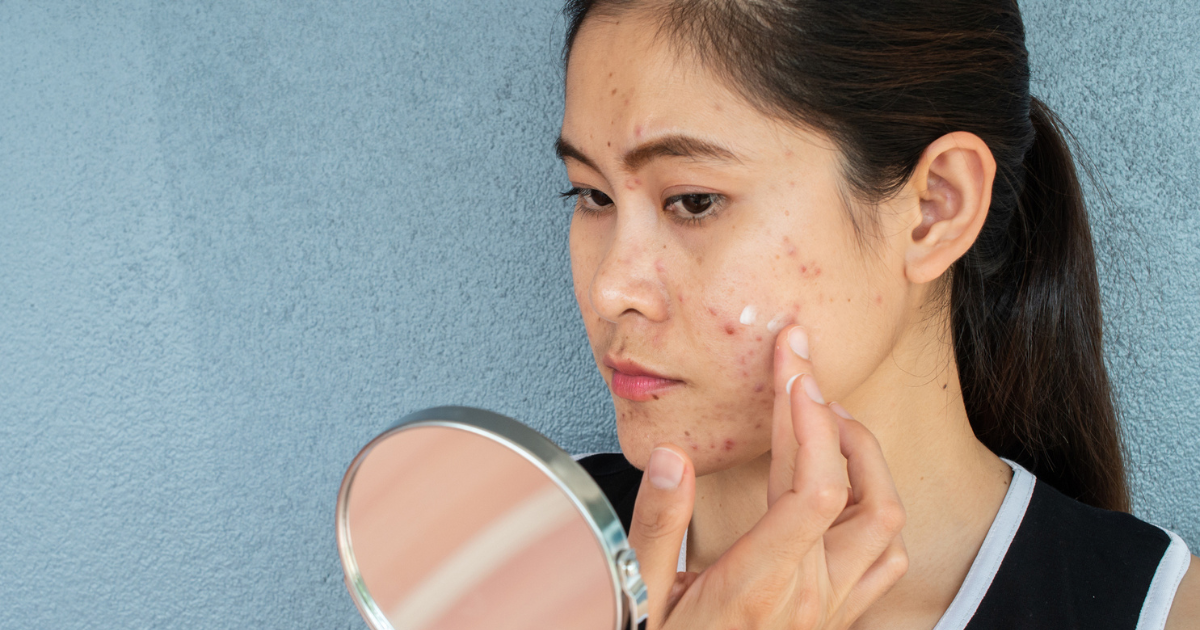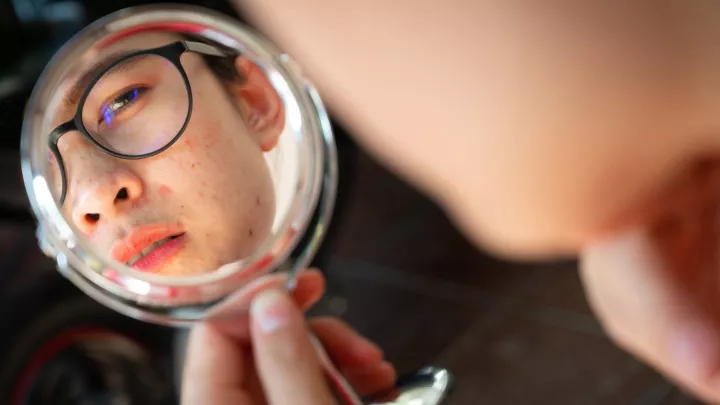Understanding the buzz about benzene in benzoyl peroxide acne products

There has been a lot of talk in recent news about benzene, a cancer-causing chemical found in benzoyl peroxide acne products, among other topically applied agents. This reported finding, made by Valisure, an independent lab with private funding, has led to concerns about the safety of everyday skin care items.
But when we look closer, things aren't so simple. Below, Nebraska Medicine dermatologist Corey Georgesen, MD, breaks it down.
“Benzene is a chemical carcinogen found abundantly in urban settings and manufactured products,” says Dr. Georgesen. “We are exposed to it daily, mostly through inhalation. You might breathe it in from car fumes or cigarette smoke. It has even been found in certain hand sanitizers and sunscreens.”
Although benzene is all around us, the FDA warns that exposure can raise your risk of cancers such as leukemia and other blood disorders. So, it's best to steer clear of it as much as possible. The FDA also says the health consequences of benzene exposure depend on the amount, route and duration of exposure and preexisting medical conditions.
"Getting cumulative exposure over a long time is likely to be the most harmful," says Dr. Georgesen.
Benzoyl peroxide, a common ingredient in acne products approved by the FDA, differs from benzene. It can effectively target acne-causing bacteria and improve skin health when used appropriately.
"Based on current knowledge, Benzoyl peroxide is safe," says Dr. Georgesen. "But it's generally recommended to avoid it if you’re pregnant, as we are unsure of potential risks based on the available scientific data."
The FDA says it keeps a close eye on the safety of medications and encourages stores to remove products if they're not up to standard. Independent studies can help generate important safety data and should be encouraged. However, corporate interests can muddy the waters, making motives and credibility unclear.
"When news like this comes out, it's imperative to look at the original study, the researchers, how they did their work, and if there are any conflicts of interest," says Dr. Georgesen. "While it's important to identify and avoid known carcinogens, this report raises some concerns. Namely, Valisure's tests involved exposing benzoyl peroxide to prolonged extreme heat – temperatures higher than that seen in the Sahara Desert, which is not how it is stored in real life."
Some critics also say there could be a conflict of interest because the president of Valisure is linked to a patent for stopping benzene from forming as a byproduct or contaminant in benzoyl peroxide products.
“Ultimately, we need more research to make definitive conclusions,” says Dr. Georgesen.







